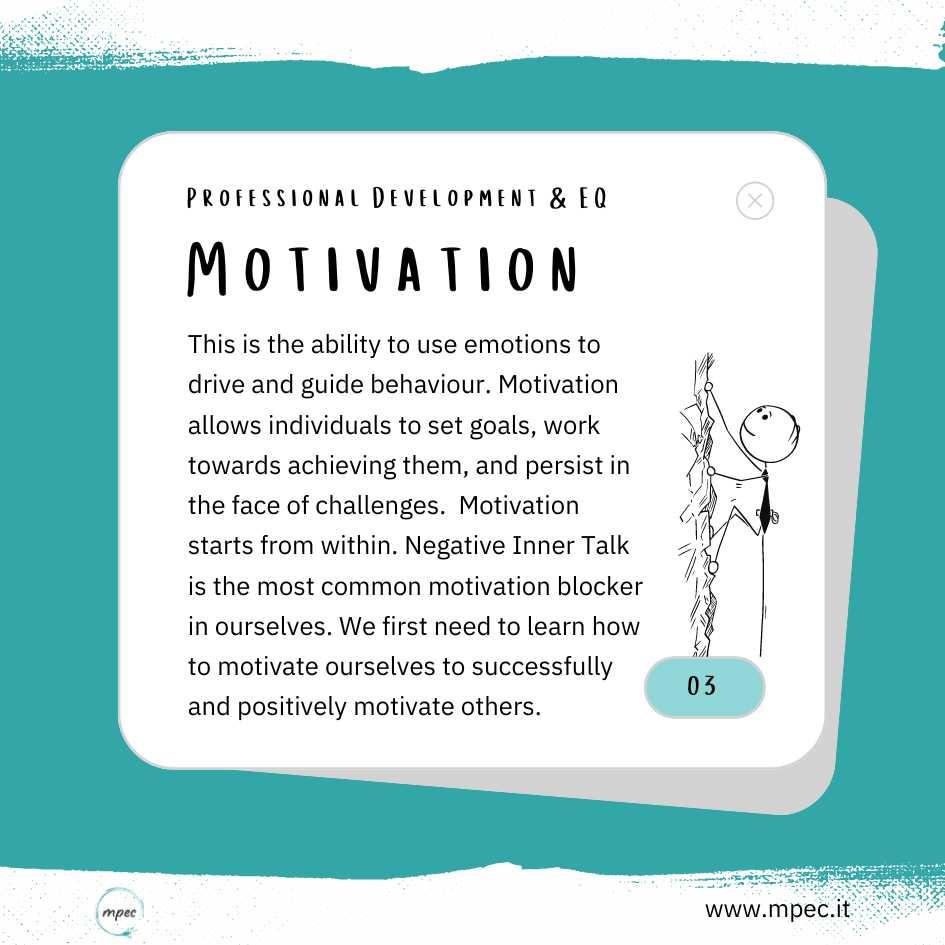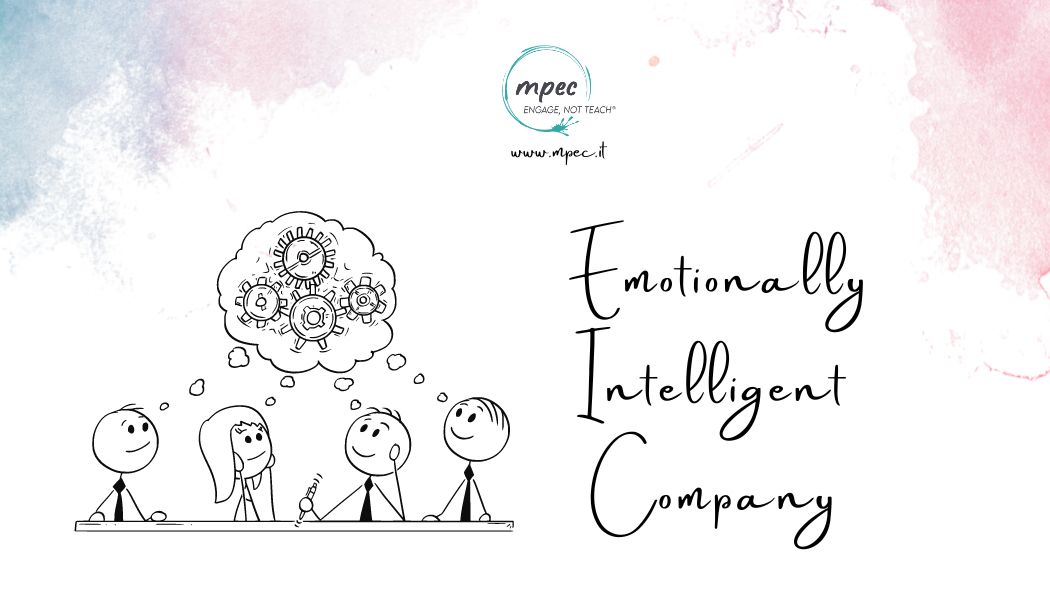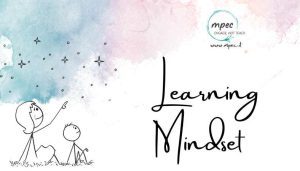In a world where businesses are constantly striving for competitive advantage, the concept of emotional intelligence (EI) in organisations is more relevant than ever. Daniel Goleman, a pioneer in the study of EI, has shed light on why this is not just a soft skill, but a fundamental aspect that can lead to substantial business success. So, what does it actually mean for a company to be emotionally intelligent?
Building a Culture of Emotional Intelligence in the Workplace
In today’s fast-paced and interconnected business environment, emotional intelligence (EQ) is essential for fostering healthy relationships, managing stress, and encouraging effective teamwork. According to Daniel Goleman, a renowned psychologist, EQ involves five critical components: self-awareness, self-management, social awareness, relationship management, and motivation.
- Self-Awareness: Understanding your own emotions and recognising their impact on others is crucial. Leaders who are self-aware can make better decisions, remain open to feedback, and lead with authenticity.
- Self-Management: This involves the ability to control emotions, adapt to changing circumstances, and remain positive in the face of challenges. It helps leaders stay composed and navigate stressful situations more effectively.
- Social Awareness: Being empathetic and recognising the emotions of others helps build rapport and trust. It also involves understanding group dynamics and the cultural norms that shape workplace interactions.
- Relationship Management: Effective relationship management is vital for conflict resolution and team collaboration. Leaders who possess this skill can inspire and guide others, while also managing workplace conflicts constructively.
- Motivation: People with high motivation are driven to achieve goals and take initiative. They maintain optimism even when faced with setbacks, inspiring their colleagues to do the same.
Beyond IQ: The Heart of Business Success
At its core, an emotionally intelligent organisation understands and manages emotions effectively, not just within its leadership but across every layer of the company. This understanding goes beyond traditional business metrics and delves into the emotional dynamics that influence every decision, interaction, and strategy.
Consider the insights shared by a senior vice president of a telecommunications company: they describe their organisation as an “abused family” due to the autocratic style of past leadership. Now, their goal is to heal and foster emotional intelligence to encourage growth. This narrative is not unique. From European airlines to high-tech companies, the need for trust, empathy, and understanding is a common theme. These qualities build the foundation of an ’emotionally intelligent leadership’ essential for navigating the complexities of modern business environments.
The Business Case for Emotional Intelligence
Mitchell Kapor, the founder of Lotus Development Corporation, emphasises that his investment decisions hinge on the emotional intelligence of the companies. He seeks to understand the emotional climate, including any potential grievances against the company. This perspective underlines that the emotional history of an organisation can impact its future, particularly if negative emotions like anger or resentment are involved.
Research from the Saratoga Institute, sponsored by the Society for Human Resource Management, also supports this view. They found that top-performing companies share common practices that resonate deeply with emotional intelligence competencies. These include:
- A balance between human and financial priorities.
- A culture of open communication and trust-building.
- Initiatives that foster collaboration and support.
- A commitment to continuous improvement and risk-taking.
These practices are not just wishful thinking; they are strategic imperatives that mirror the emotional competencies seen in high-performing individuals.

Real-World Example: Egon Zehnder International
A closer look at Egon Zehnder International, a global executive search firm, provides a concrete example of an emotionally intelligent organisation in action. Their approach to collaboration and teamwork is a testament to their deep-rooted emotional intelligence.
The firm operates as a single global team, sharing profits and fostering a spirit of cooperation. This structure eliminates the ‘star’ concept, promoting an all-for-one, one-for-all ethos. This approach is dramatically different from the industry norm, where individual success often leads to internal competition and information hoarding.
The Egon Zehnder Way
The story of Victor Loewenstein at Egon Zehnder highlights the firm’s emotionally intelligent approach. Tasked by the World Bank to find a candidate for a vice presidency, Loewenstein leveraged the firm’s global network, demonstrating the power of collaborative, emotionally intelligent decision-making.
The firm’s culture also stands out in its approach to compensation and collaboration. They treat their operations as a single profit center, ensuring that no one partner’s earnings are tied to individual performance alone. This policy fosters an environment where sharing expertise and helping colleagues are as valued as securing new clients.
Why Emotional Intelligence Matters
The implications of this approach are vast. As Egon Zehnder’s profitability and business performance indicate, the right mix of emotional and professional skills can lead to unparalleled success. Their approach to hiring and team building focuses on personal qualities and emotional intelligence alongside professional skills. This strategy ensures that the firm not only brings in top talent but also nurtures a supportive and collaborative environment.
So, What now?
Emotionally intelligent organisations like Egon Zehnder are leading by example, showing that the path to business success is paved with empathy, collaboration, and emotional understanding. The shift towards emotionally intelligent business practices is not just a trend but a transformation that is redefining what it means to be successful in the business world.
As we reflect on the insights shared by Goleman and the real-world success stories, it becomes clear that emotional intelligence is not just about feeling better—it’s about performing better. By embracing emotional intelligence, companies can navigate the complexities of modern business with agility and grace, turning challenges into opportunities for growth and development.
In the end, an emotionally intelligent organisation is not just a place where people work; it is a vibrant, dynamic community where every stakeholder can thrive. This is the new blueprint for success in the 21st century. So, let us ask ourselves, “Is our organisation emotionally intelligent?” and more importantly, “What can we do to enhance our emotional intelligence today?”
To What Extent is My Company Emotionally Intelligent? A Self-Assessment Quiz

This quiz is designed to evaluate your organisation’s emotional intelligence (EQ) based on key principles drawn from Daniel Goleman’s work. Respond to each statement with a rating from 1 (strongly disagree) to 5 (strongly agree) to gain an insight into your company’s total EQ score.
1. Self-Awareness
1.1 Our leadership team understands the impact of their emotions on others.
1.2 Employees are encouraged to recognise their emotional triggers and biases.
1.3 We actively seek feedback on our organisational culture and emotional climate.
2. Self-Management
2.1 Leaders can control their emotions and react appropriately under stress.
2.2 Our company remains resilient and adapts positively to change.
2.3 We have policies that promote a healthy work-life balance and employee well-being.
3. Social Awareness
3.1 We value empathy and understand the perspectives of our clients and employees.
3.2 Team members are aware of diverse cultural norms and act inclusively.
3.3 Our organisation provides training to develop interpersonal skills.
4. Relationship Management
4.1 Leaders actively build and maintain positive relationships across all levels.
4.2 We constructively manage conflicts and encourage collaborative problem-solving.
4.3 The company fosters a supportive environment where teamwork thrives.
Scoring:
- 12–24: Your organisation may need significant improvement in EQ. Consider providing training and support for the development of emotional intelligence.
- 25–39: Your organisation shows moderate EQ. There is potential to improve through more focused initiatives and consistent practices.
- 40–60: Your organisation demonstrates strong EQ. Maintain these practices and continue to nurture a positive, emotionally intelligent culture.

#EmotionalIntelligence #WorkplaceCulture #SelfAwareness #LeadershipSkills #TeamCollaboration #EmpathyAtWork #EffectiveCommunication #ConflictResolution #WorkplaceWellbeing #CorporateSuccess #EmployeeMotivation #GolemanEQ #BusinessGrowth #OrganisationalDevelopment #ManagementSkills #WorkplaceInclusion #PositiveWorkplace #ResilientTeams #WorkplaceRelationships #WorkplaceMentalHealth #ChangeManagement #EmployeeEngagement #WorkplaceHappiness #SelfManagement #EmotionalWellbeing #MotivationAtWork #OrganisationalPsychology #LeadershipDevelopment #TeamSuccess #WorkplaceSupport #EmpatheticLeadership #BusinessLeadership #CorporateTraining #EmotionalIntelligenceTraining #WorkplaceInnovation #LeadershipCoaching #HRStrategies #BusinessCoaching #GrowthMindset #OrganisationalSuccess #InclusiveLeadership #CorporateCulture #LeadershipJourney #WorkplaceAdaptability #WorkplaceExcellence #GrowthCulture #ResilientLeadership #EmployeeSupport #LeadershipInsight #CorporateWellness




